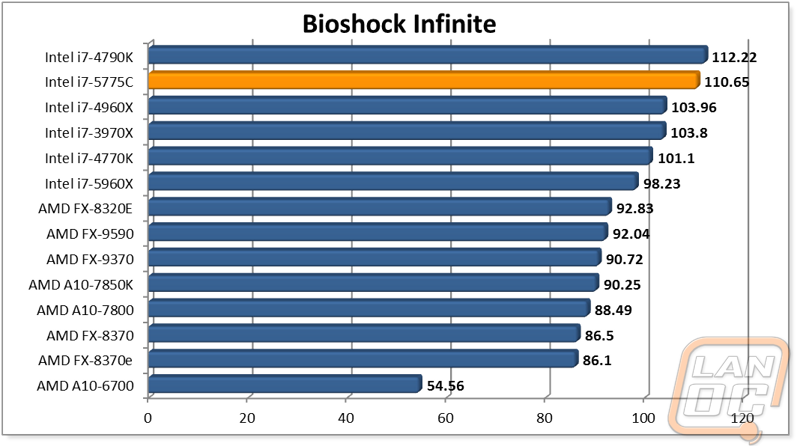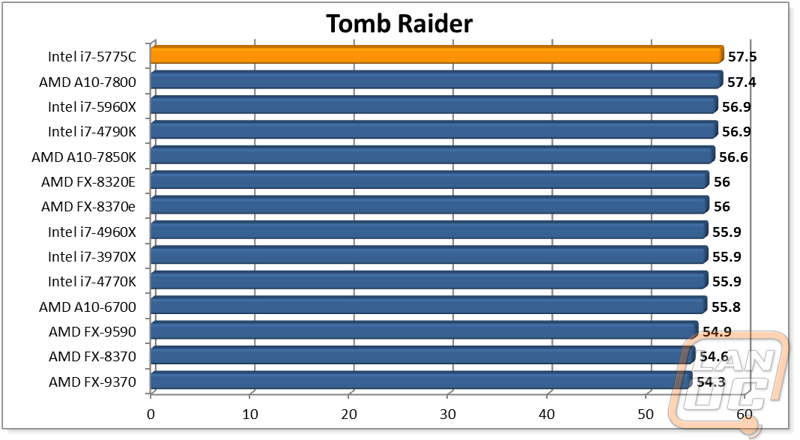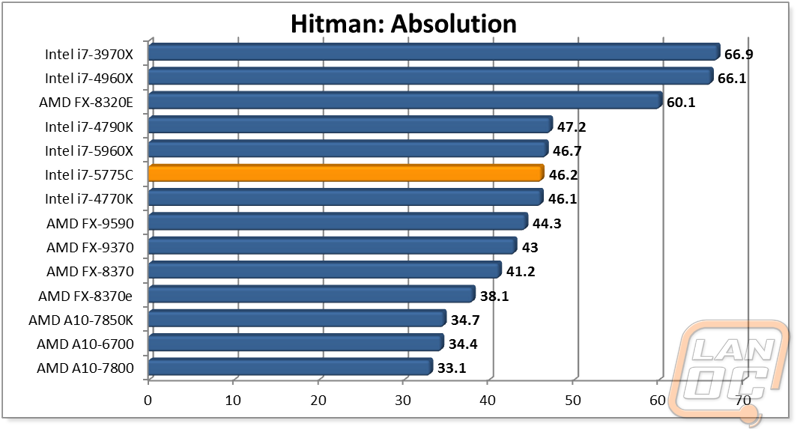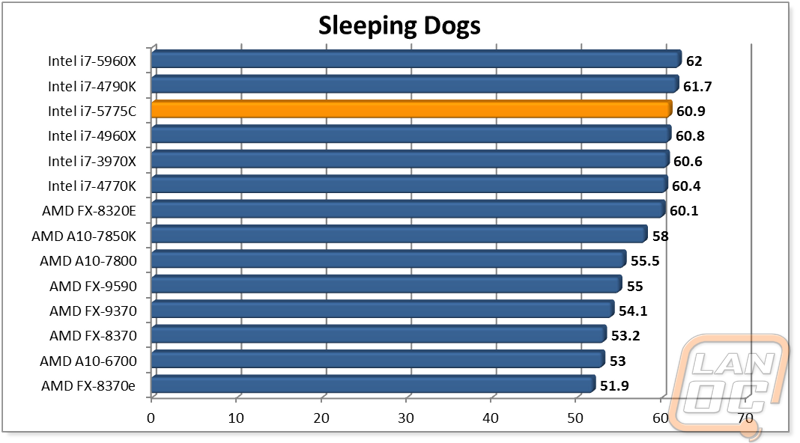CPU Performance
Once I had the i7-5775C up and running on our testbench to put it to the test I ran it through our usual CPU benchmark suite to see how well it performs. These tests are all ran using a GTX 780 to keep a level playing field. The first test I ran was X264 HD to see how well Broadwell handles encoding. The results were interesting. Our graph is sorted by the second pass and puts the 5775C down just below the aMD FX-9590 with its extremely high clock speeds. The first pass though actually puts the CPU up even higher with just the 4960X, 3970X, and 4790K performing better.
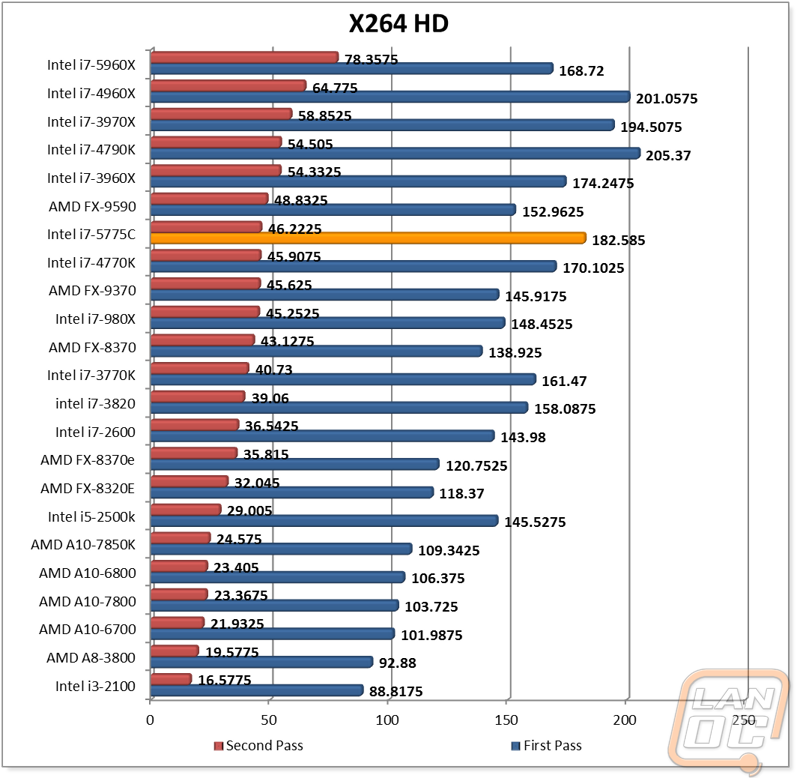
Next I jumped into my favorite benchmark, Cinebench. This was run using Cinebench R11.5 for consistency but I also tested using the newer R15 for future reference as well. The reason I love this benchmark so much is because it runs two tests, one using all of the cores and then a second test with just one core. This allows us to see how efficient the CPU is when running on older software that doesn’t support multiple cores. Here the 5775C came in just slightly below the older 4770K in the multicore benchmark. The single core benchmark was similar with a 1.71. With a comparable clock speed Broadwell would outperform the older CPUs but it is clearly being held back by lower clocks and a more power efficient TDP.
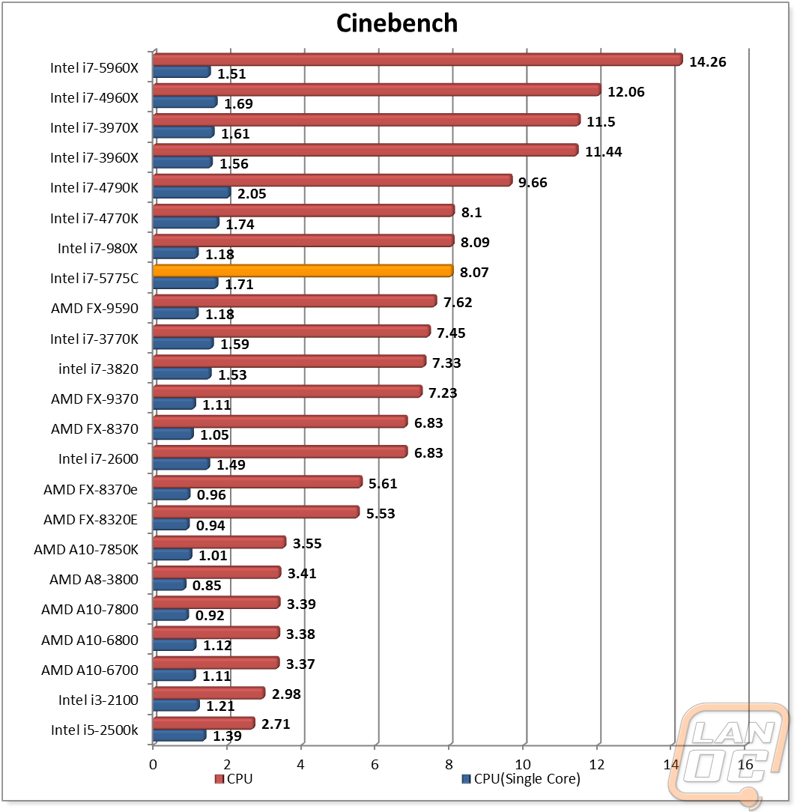
Next used Passmark’s CPU benchmark as a general synthetic benchmark. Passmark runs a long list of tests and then puts them all together with a score, in this case we only use the CPU score not the full Passmark score to prevent the SSD and GPU from effecting the score. Here the 5775C came in noticeably lower than the 4770K and down far too close to the dated 3770K than I would like to see. Again the clock speeds hurt performance and in this case it was even more noticeable.
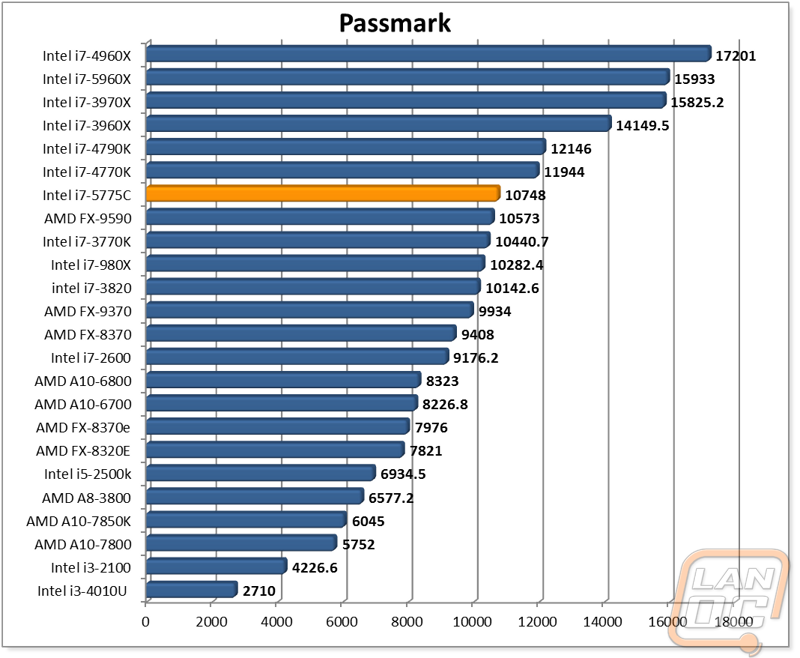
Next I ran through PCMark 8 using both the OpenCL setting and the conventional setting to see how well the 5775C would perform in real life usage. PCMark 8 benchmarks using your browser and office along with testing video performance to get an idea of what to expect day to day rather than just hypothetical synthetic benchmarks. Here the 5775C outperformed the 5960X but had trouble with the higher clock speed CPUs like the 4790K as well as AMDs 9590.
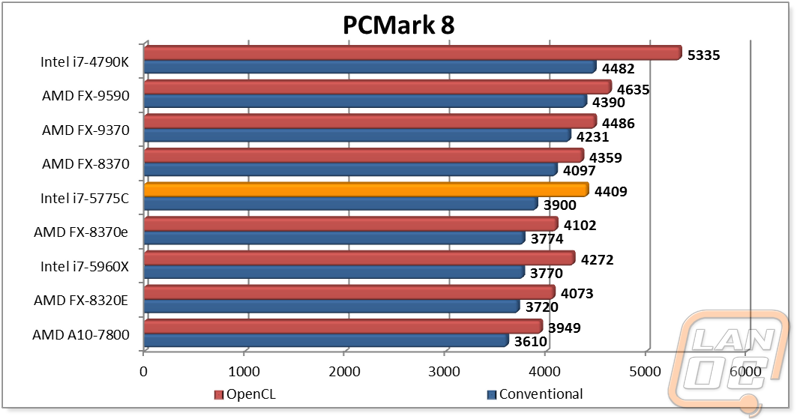
Next to test pure mathematics I used wPrime on both of its settings. Here the lower the score the better. This time around we did outperform the i7-4770K but the CPUs with additional cores like the 2011 based Intel CPUs and AMDs FX line pull ahead.
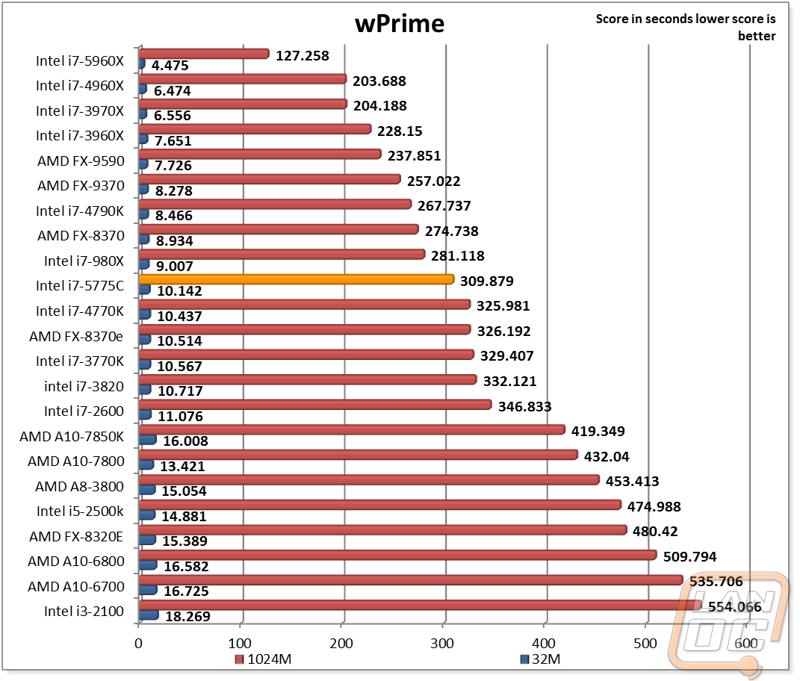
Next I ran through 3DMark Fire Strike but focused on the Physics Score as it is completely CPU dependent. Surprisingly the 5775C pulled a nice lead on the 4770K and nearly caught up to the 4790K. This put it up in the top 1/3 of the charts with the big 6 and 8 core Intel CPUs up above them.
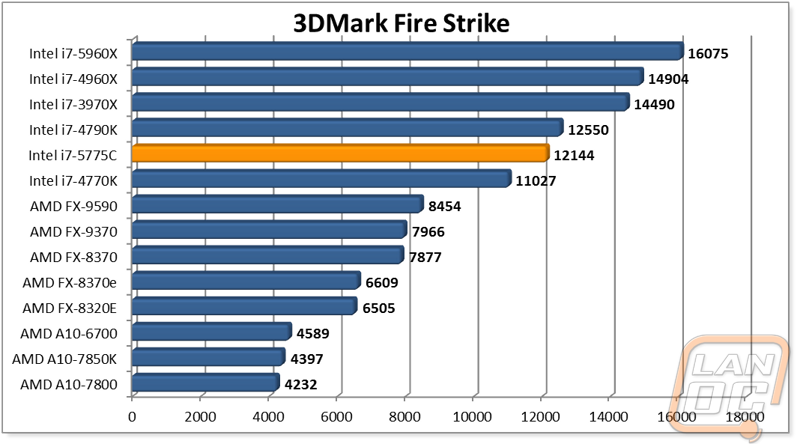
Next I ran the i7-5775C along with our GTX 780 through four popular games to get an idea of how well the different CPUs effect the in game performance. In Tomb Raider for example the results are almost completely GPU limited so you only see a very slight change in performance. In some of the other games though we actually see charts similar to in the CPU specific testing. In Bioshock Infinite for example you can pick up an additional 10-20 FPS with a high clock speed Intel CPU. I know a lot of people will throw a lot of money into a new GPU to see improvements like that. It is completely dependent on the game though.
